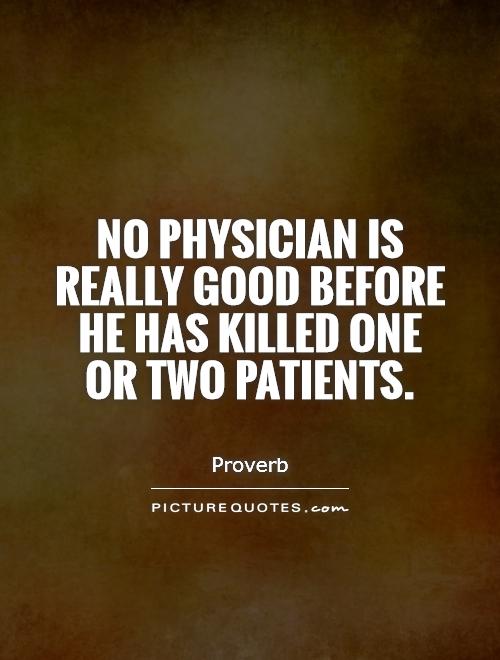No physician is really good before he has killed one or two patients

No physician is really good before he has killed one or two patients
The proverb "No physician is really good before he has killed one or two patients" is a controversial statement that has been debated for centuries. On the surface, it may seem shocking and even unethical to suggest that a doctor must make mistakes in order to become skilled at their profession. However, when examined more closely, this proverb can be interpreted in a more nuanced way.One possible interpretation of this proverb is that experience is the best teacher. In the field of medicine, as in many other professions, mistakes are inevitable. Doctors are human, and they are bound to make errors at some point in their careers. These mistakes can be valuable learning opportunities that help physicians grow and improve their skills. By learning from their mistakes, doctors can become more competent and effective in treating their patients.
Another interpretation of this proverb is that it highlights the importance of humility in medicine. Doctors who have never made a mistake may become overconfident in their abilities, leading them to overlook important details or take unnecessary risks. By experiencing failure and learning from it, physicians can develop a sense of humility that allows them to approach each patient with care and caution.
It is important to note that this proverb should not be taken literally. Killing a patient is a tragic and unacceptable outcome in medicine, and doctors should always strive to provide the best possible care for their patients. However, the underlying message of the proverb – that mistakes can be valuable learning experiences – is worth considering.












 Friendship Quotes
Friendship Quotes Love Quotes
Love Quotes Life Quotes
Life Quotes Funny Quotes
Funny Quotes Motivational Quotes
Motivational Quotes Inspirational Quotes
Inspirational Quotes